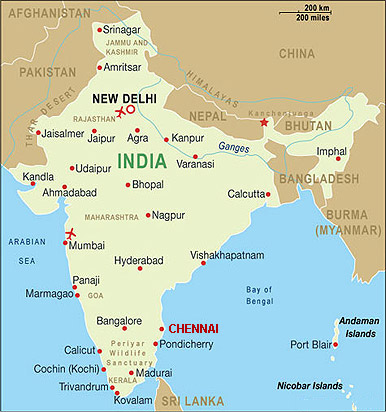 CHENNAI: It was just another Sunday morning event at the DG Vaishnav College in the city. The back stage of the main auditorium was in full activity, with women dressed in silk saris shuffling through event agendas, kurta clad men clicking on their laptops and others animatedly discussing the event arrangement. Everything seemed to follow routine event management. But one thing made the scenario a rather novel affair, and this was the fact that all conversation, from the brisk commands to the light group chats, were all in Sanskrit!
CHENNAI: It was just another Sunday morning event at the DG Vaishnav College in the city. The back stage of the main auditorium was in full activity, with women dressed in silk saris shuffling through event agendas, kurta clad men clicking on their laptops and others animatedly discussing the event arrangement. Everything seemed to follow routine event management. But one thing made the scenario a rather novel affair, and this was the fact that all conversation, from the brisk commands to the light group chats, were all in Sanskrit!
“It has just become routine for us here to speak in Sanskrit,” says one of the volunteers of the Samskrita Bharathi, breaking off from her conversation in Sanskrit to a fellow volunteer when asked about the use of the language. The event was the valedictory function of the Sanskrit week celebrations where students from various schools in the city had competed with each other in a range of competitions all in Sanskrit.
Though most speakers sought to give their addresses in Tamil, everything else, including introduction and general compeering was in Sanskrit.
Chief guest at the event, Sahitya Akademi awardee R N Joe D Cruz, condemned the protests against Sanskrit as a continuation of the colonial mindset to disconnect Indians from their culture and their history. He said that the rift that has been created between Tamil and Sanskrit is a continuation of the agenda to bring division between cultures. “The greatest scholars of Tamil literature, be it Thiruvalluvar or Kambar were well-versed in Sanskrit too,” he pointed out.
T Chakravarthy of Vivekananda Educational Society said that it was unfair to call Sanskrit a dead language when it was known to the best language, even in computer programming.
“It is not possible to remove Sanskrit from our heritage, wherever we are in this country.” He added that only around 10 per cent of the works in Sanskrit are related to spirituality, the rest of them are about the worldly affairs and practical life.
“It is unfair to name Sanskrit as the ‘language of only poojas’ belonging only to one community or caste. Much of this country’s wisdom, history and heritage is in this language,” he said.





